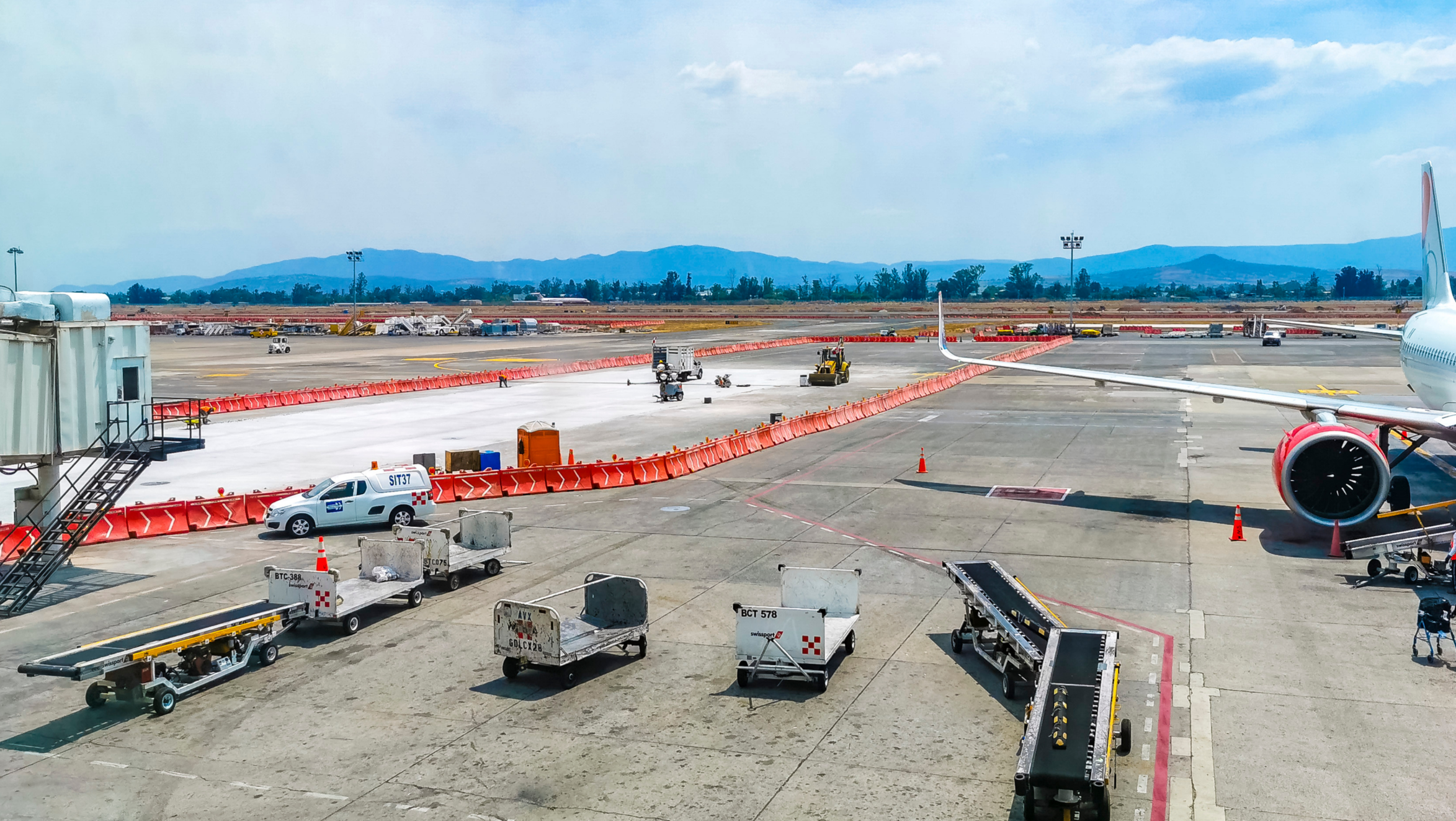The Greek Government, in partnership with the private sector and backed by the European Investment Bank (EIB), is undertaking a massive airport expansion on a greenfield site at Kasteli on the island of Crete.
The new airport – which will replace the existing Heraklion Airport – will increase passenger capacity to nearly 15 million by 2050 and could even exceed 18 million. This equates to a rise of at least seven million people from 2018, when capacity stood at around 8 million.
Despite the obvious climate effects of such a dramatic increase in air traffic, the project’s environmental impact studies inexplicably describe the climate impacts as “neutral” and “negligible”.
We responded to their latest public consultation this month to call them out on this. Our findings show the project is based on flawed and lacking climate change analysis and brings into question the commitments of Greece and the EIB to climate action and the Paris Agreement temperature goal.
Aviation’s growing climate problem
Aviation already accounts for 3.5% of historical global warming and, if unmitigated, this share could rise to 22% by 2050. Currently, there are no clear pathways for the sector to decarbonise in the short to medium term, so any airport expansion simply means more global warming.
And more global warming means more catastrophic climate impacts around the world – the science is unequivocal.
Add to that the uncomfortable truth that flying is predominantly an activity undertaken by the world’s wealthy (1% of people are responsible for 50% of commercial aviation emissions), and that climate impacts of flying are felt disproportionately by the world’s poor. It’s blatantly clear that there is no room for airport expansion in the absence of proper decarbonisation.
Despite all of this, the Greek state – a Paris Agreement signatory – is a 45.9% shareholder in the new airport, and the EIB has provided a 28-year, €180m loan to finance the project.
Increasing capacity can’t come without any climate impacts
The project has been subject to three environmental impact assessments (EIAs) between 2009 and 2023. None of these adequately deals with climate change impacts – in fact, they conclude that the climate impacts of the project are “neutral” and “negligible”, according to automatically produced translations of the environmental impact studies.
This is not only inconsistent with their own analysis – which shows rising GHG emissions from the project between 2025 and 2040 – but is manifestly wrong. It is impossible to increase air traffic to the degree anticipated without causing impacts on the climate.
The conclusions of the EIAs seem based on the premise that the airport will contribute a small amount of GHG emissions when considered in the context of national, and even international, GHG emissions. That position runs contrary to the need to rapidly and deeply decarbonise all sectors, as outlined by the IPCC, and the growing understanding that every fraction of a degree is important.
It also just doesn’t work. In short, they’re saying “someone else can do it”. What if we all took that approach?
No sector should be growing its emissions at the expense of other sectors, or indeed, the rest of society.
The facilitating role of Europe’s ‘climate bank’
In light of all of this, it’s concerning to see the project is financially backed by the EIB, which claims to be the ‘EU climate bank’.
As part of its 2021-2025 climate bank ‘roadmap’, the EIB withdrew support from investment in airport capacity expansion. However, anything already under review up to the end of 2022 was exempt. This included the Kasteli project, which neatly crept through just before the change in policy announcement.
In all, it is reported that the EIB has provided €4 billion of support to airport expansions since 2016. Due to the financial and operational term length of these projects, the EIB will remain invested in projects which are directly contrary to its current policy and climate commitments for many decades.
That position clearly undermines the credibility of the EIB and brings into question its claims to be aligned with the Paris Agreement goals.
Can the EU’s ‘climate bank’ that ‘invest[s] in a sustainable future for all’ really stay invested in a significant fossil fuel-dependent project until the mid-century? That feels unsustainable to us.
The project should never have been given the green light, which is why we’re calling for:
- The Greek Government to call a stop to building work and to reverse the capacity increase decision, in light of its international and domestic legal obligations to reduce greenhouse gas emissions; and,
- The EIB to withdraw its support for a project that is incongruous with its Paris alignment and investment policy.
Until we have a proper means of decarbonising the aviation sector, it simply cannot be allowed to grow.


